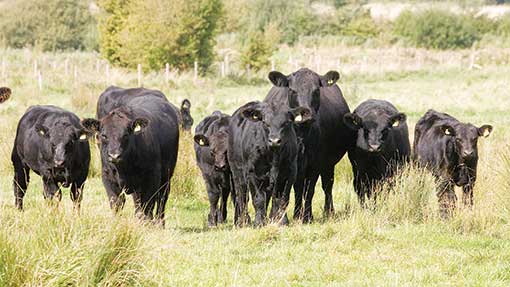Latin American deal could cost EU beef industry €9bn

European beef farmers could lose out to the tune of €9bn (£7.3bn) from a trade deal being proposed between the EU and Latin America, with the poultry industry also suffering from cheap imports.
The deal, which also covers sectors outside agriculture, would mean creating freer trade between the EU and Mercosur, a block of countries including Argentina, Brazil, Uruguay and Paraguay.
However, an impact assessment conducted by Copa-Cogeca, the lobby group representing farming unions across the EU, found that benefits to agriculture would be one-sided and that EU farmers would suffer a disrupted internal market and greater price volatility.
See also: Farming divisions threaten US-EU trade deal
Raising the amount of beef which Mercosur (and the USA, Canada, Australia and New Zealand) could export to the EU to 300,000t at zero duty – the level Mercosur requested – could swamp the EU market with cheap beef, leading to a loss of sales for EU beef producers and depressed prices, it said.
According to the impact assessment, this could cost EU beef farmers €9bn (£7.3bn), said Lucia Zitti, economist at the NFU.
There was “no real justification” for the Mercosur pact, said Pekka Pesonen, secretary general of Copa-Cogeca, as the deal was looking so one-sided for agriculture.
The low level of economic integration between the four countries in the Mercosur block, was a further concern, warned Mr Pesonen.
“We are not talking about a real trade bloc as these countries do not have a common market.” Between them, there was a “very restrictive trade regime in place,” with Argentina becoming increasingly protectionist.
This meant that if the EU organised an export quota to Mercosur, the products would not be able to move freely among the countries in the block, said Ms Zitti.
Concern was also brewing among EU agricultural groups about the cumulative effect of several free trade deals between the EU and other countries, said Ms Zitti.
Copa-Cogeca and the NFU had asked the EU Commission to produce an impact assessment on the effect on agriculture of the Mercosur pact, the Transatlantic Free Trade Treaty (also currently being negotiated), and deals with Canada and Ukraine.
There is currently no date for the next round of talks on the pact, but proposals are due to be exchanged by the end of May.
